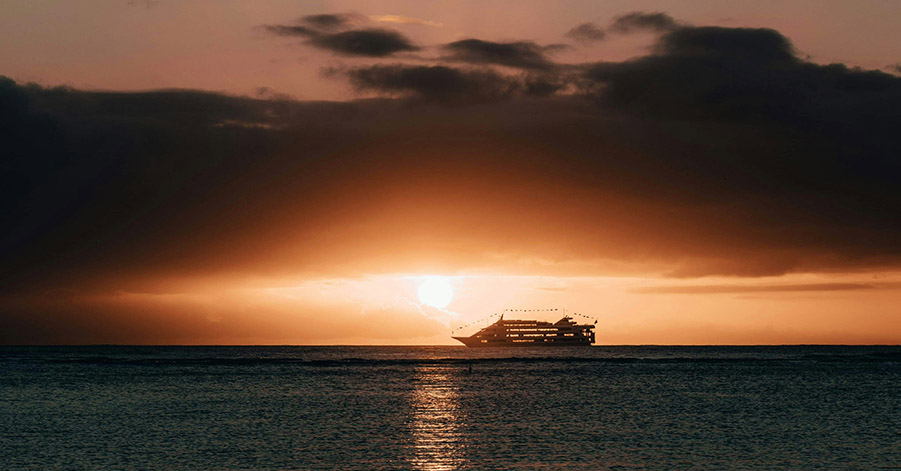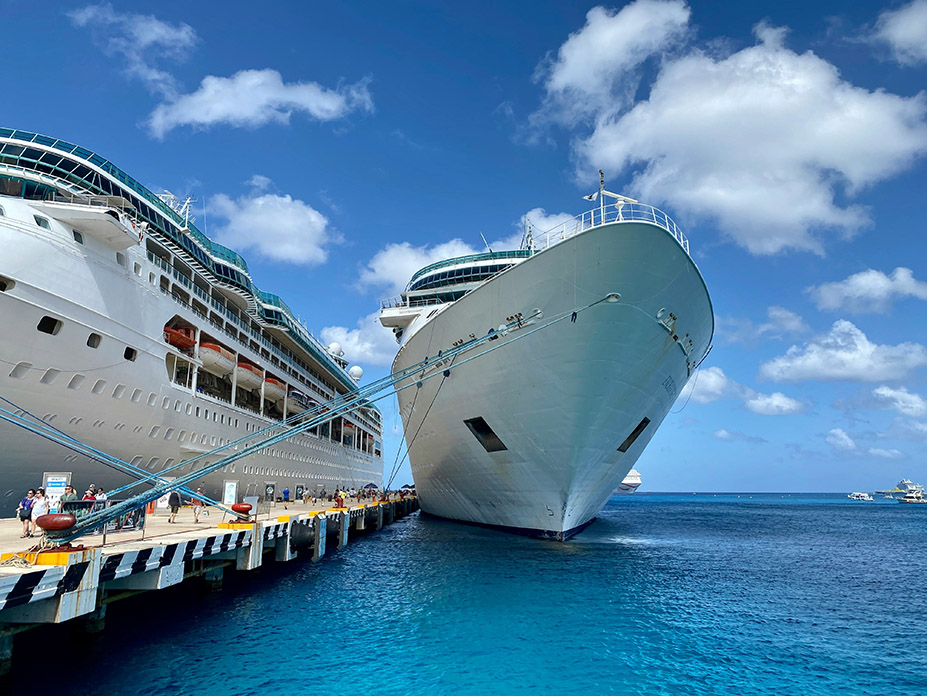
The global cruise ship industry has undergone massive expansion over the past few years, with Cruise Industry News reporting that the luxury segment alone is projected to grow and reach nearly 1.2 million passengers by 2027. With this huge growth, it’s crucial that the industry prioritize sustainability to minimize impacts on ecosystems.
Through the adoption of cleaner technologies, reducing waste and emissions, and fostering responsible tourism practices, cruise lines can reduce their carbon footprint and facilitate growth that aligns with climate preservation. Below, we’ll look at other factors driving the industry toward sustainability and how cruise lines are taking steps to become greener.
A call for more sustainable cruise practices
It may come as no surprise that the cruising industry has generally not been seen as environmentally friendly. Researchers from the University of Exeter found that cruising has historically been a major source of environmental pollution and degradation, affecting the air, water, soil, fragile habitats, and wildlife. Their meta-analysis revealed that large cruise ships can have a carbon footprint greater than 12,000 cars; passengers on a 7-day Antarctic cruise can produce as much carbon dioxide emissions as the average European in an entire year; and energy use for an overnight cruise was 12 times larger than the value for a land-based hotel.
Fortunately, a 2021 survey from Cruise Critic showed that 77% of member respondents are increasingly valuing cruise lines with environmentally friendly policies and protocols. In the poll, more than half of the respondents rated initiatives like wastewater treatment and management systems, onboard recycling programs, and the elimination of single-use plastics as “very important.”

Cruise lines promoting sustainable travel
Hurtigruten Expeditions
Under the leadership of Hurtigruten CEO Daniel Skjeldam, the cruise line has been at the forefront of greener initiatives since 2016. That year, the company began modifying its ships to use power from the grid while docked at ports rather than burning their own fuel, reducing air pollution by as much as 70%. It was also in 2016 that Hurtigruten ordered the world’s first hybrid-powered cruise ships, which release 20% less emissions compared to similarly-sized conventional ships.
Two years later, the company announced that it would soon be operating ships with liquefied biogas, a renewable gas produced from dead fish and other organic waste from Norway’s large fisheries and forestry sectors.
Explora Cruises
The Swiss luxury cruise brand Explora Cruises is set to unveil an LNG-powered vessel that features hydrogen fuel cells along with methane slip-reducing technology in 2027. Working with Italian shipbuilder Fincantieri, the new ships will have substantially reduced greenhouse emissions while at sea, emitting water vapor and heat when idle at port. The new fleet design also incorporates various new technologies that will enable a reduction of nitrogen oxide emissions by 90%. Additionally, Explora has a long-standing ban on single-use plastics on and off-board, and the company holds an underwater noise reduction certification to keep from disturbing marine life.
Virgin Voyages
In October 2023, Virgin Voyages concluded its initial trial of sustainable marine fuel for its Barcelona-based cruise ship, Valiant Lady, as the company took significant strides towards achieving net zero carbon emissions. Using and testing blended fuel options has been gaining momentum in the industry with other companies like Celebrity Cruises, Symphony of the Seas, and Holland America Line all taking similar approaches. While some environmentalists have argued that the choice of using blended fuels is not as progressive a step as other cruise lines are taking, the trial phase is only the first step and is an encouraging sign that the industry is taking sustainability seriously.
Consumers are increasingly prioritizing sustainable travel options as concerns over climate change grow. Cruise lines embracing green practices not only align with global environmental goals but also help cruises attract a more conscientious clientele. Moreover, with regulations on emissions becoming stricter, adopting sustainable practices has turned into a strategic imperative for the industry’s long-term viability.
For more travel and lifestyle articles like this, visit the Our Wonderful World Media & Entertainment Inc website!

